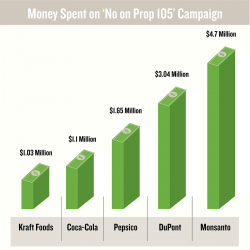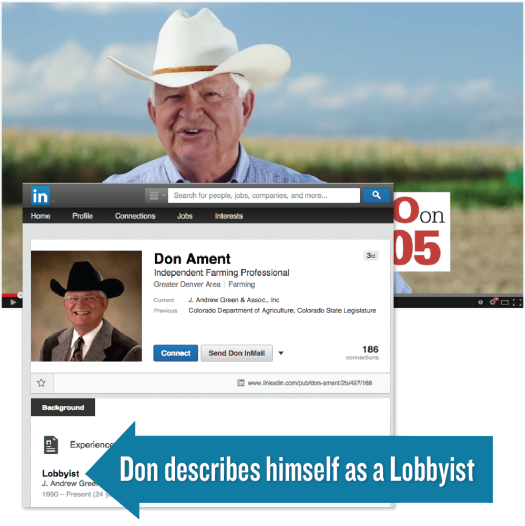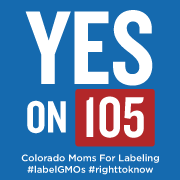If you live in Colorado, you have seen the ads.
Farmers talking about how labeling genetically modified organisms (GMOs) is misleading.
Misleading?
If we take a look into these ads—who these farmers actually are, and who is providing the funding —we’ll find what’s misleading. And it’s not the labels on genetically engineered foods.
There are some ads with white-haired actors posing as farmers. They’re not. They’re lobbyists. A quick peak at their LinkedIn profiles reveals who these people actually are versus who they claim to be on TV. Now that’s misleading—if not downright deceptive.
What else are these people hiding? And who is funding this message? Farmers? Lobbyists?
Not even close.
Monsanto has contributed $4.7 million, Dupont $3.04 million, Pepsico $1.6 million, Coke $1 million, Kraft $1 million, the list goes on to include companies like Dow Chemical at $300,000.

In total, the guys that don’t want you to know what’s in your food have raised $14 million.
That’s a lot of money being spent in Colorado that could have been put to better use: like parks and recreation, roads, schools, community gardens, labeling.
It is even more than Nike, Chevy, Ford, Sprint, Verizon Walmart, and Target will spend on advertising combined over the same period.
And out of state chemical companies account for half of that budget.
So we know the chemical companies are spending a ton of money to convince you that you don’t really want to know what is in your food. The question remains: Why?
Labeling these products would hold them responsible.
It might prove that their products aren’t as safe or as popular as they claim.
It would give data to farmers and food companies about changing consumer demand. It would provide Colorado families, food companies and farmers real time information about what we are eating and how we are feeding our families.
Right now, we are basically eating in the dark, since these ingredients have been hidden in our food without our knowledge. This is good if you’re a big company wanting to avoid a lawsuit. Not so good if you’re a consumer.
In fact, Consumer Reports recently concluded in their long-term study of GMOs that there is a need for mandatory labeling.
“GMOs have the potential to introduce allergens and create other unintended changes that may affect health…GMO foods should be labeled. Period.”
Consumer Reports isn’t the only one that feels this way.
64 countries around the world label these ingredients, including all of our key U.S. trading partners. In the end, knowing what is in your food is your right—it’s the right of eaters around the world.
Our American food companies label GMOs on their products in other countries, but they hide them here.
People in Colorado believe we have the right to know what we are eating, too. We are joined by others states around the country that are introducing legislation, too.
Vote YES on 105 and join Colorado families, food companies and real farmers who believe that knowing what is in our food is in the best interest of Colorado.
The big chemical companies with the $14 million budget will say that those that can afford organic already have that right, but in Colorado, we believe that it is a fundamental human right that should be given to all families.
Vote YES on 105. Learn more about the proposition here.
~ Robyn O’Brian
~
Love elephant and want to go steady?
Sign up for our (curated) daily and weekly newsletters!
Editor: Emma Ruffin













Read 3 comments and reply